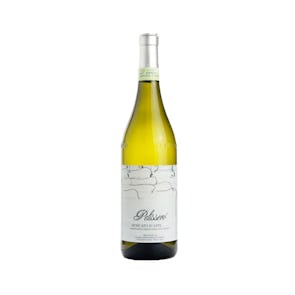
Morishima Miyama-Nishiki Junmai Daiginjo
Delicate Elegance in a Bottle
Tasting Notes from the Curator
The Morishima Miyama-Nishiki Junmai Daiginjo envelops the senses with an elegant bouquet that marries subtle floral notes reminiscent of blossoming cherry and spring flowers with delicate fruity hints of melon, pear, and apple. These aromas seduce the nose with a fresh and graceful elegance that is signature to high-quality sakes. On the palate, the sake presents a harmonious interplay of crisp acidity that cleanses and refreshes, balanced beautifully by the gentle bitterness imparted by the expertly polished Miyama-Nishiki rice. This balance is further elevated by the delicate natural sweetness of the rice, crafting a dynamic and sophisticated flavor profile. The purity of this Junmai Daiginjo is echoed in its luxurious texture, smooth and refined, gliding effortlessly across the palate like precious silk. Completing this sensory journey is a unique microfoam sensation that lends an air of sophistication and decadence, making it a prestigious exemplar of the sake’s highest tier, celebrated for both its craftsmanship and its enthralling sensory composition.
Pairings & Suggestions
Indulge in the manifold culinary possibilities that the Morishima Miyama-Nishiki Junmai Daiginjo offers, elevating a variety of dishes with its nuanced profile:
- Sushi and Sashimi: Enhance the delicate flavors of nigiri and sashimi, where the sake’s crisp acidity accentuates the freshness of tuna, salmon, and yellowtail.
- Grilled White Fish: A simple preparation with lemon and herbs highlights the sake’s refined sweetness and smooth balance.
- Poultry and Light Meats: Counterbalance a lightly grilled lemon-herb chicken, where the citrus echoes the sake’s acidity.
- Creamy Cheeses: Pair with fresh goat cheese or brie for a melding of flavors that complements the smooth texture of the sake.
- Light Desserts: Mango sorbet underscores the sake’s floral and fruity notes, offering a harmonious conclusion to a meal.
- Global Explorations: Venture into Mediterranean and Thai cuisines, where fresh, herbal ingredients, and citrus flavors can further elevate the sake experience.
A Tale of Samurai Spirit and Global Resilience
The Morishima Sake Brewery, nestled in the picturesque Kawajiri region of Ibaraki Prefecture, carries a compelling legacy that dates to the early 20th century. Founded by Michimasa Morishima, a former samurai transformed into a dedicated sake brewer, the brewery survived the turbulence of WWII, the devastating Great East Japan Earthquake, and has continually adapted to the changing tides of time and taste. Thanks to its strategic coastal location, where the mingling of pacific breezes influences the sake’s creation process, Morishima harnesses the advantages of both the rich Ibaraki soil and the pristine waters from the Abukuma Mountains. These unique geographical elements distinctly imbue the Morishima Miyama-Nishiki Junmai Daiginjo with its impeccable purity and refined palate. As the sake travels from this historic region to satisfied connoisseurs globally, each bottle becomes a testament to resilience, craftsmanship, and an unwavering dedication to quality that captures the essence of Japan’s rich sake tradition.
Understanding Junmai Sakes
When it comes to Junmai sake, the difference lies in the rice — how much of it is polished away, and how that choice shapes the flavor. Think of it as minimalism versus refinement — each tier offering its own kind of beauty.
-
Junmai (≤70% polish): Bold, earthy, full-bodied. You taste the rice. Great warm or room temp.
-
Junmai Ginjo (≤60% polish): Lighter, more aromatic with hints of fruit. Smooth and slightly refined. Best chilled.
-
Junmai Daiginjo (≤50% polish): Ultra-polished, delicate, complex. Soft, elegant, and best enjoyed cold — a luxury pour.
The more the rice is polished, the more delicate and nuanced the sake becomes. But that doesn’t mean “better” — it’s about preference, occasion, and the kind of experience you want in the glass.
Storage Instructions
Store unopened sake in your fridge ideally at 4°C. If you wish to drink your sake chilled, place it in the refrigerator the night before consumption. Opened bottles should always be kept refrigerated. If you later wish to drink your sake at room temperature, place the portion you want into a small pouring vessel and leave that out on the counter at least 3 hours before consumption. Generally, sake should be consumed within one year of the bottling date, but when properly stored, it can survive up to 2 years. An open bottle of sake must be consumed within 2 to 3 weeks.


